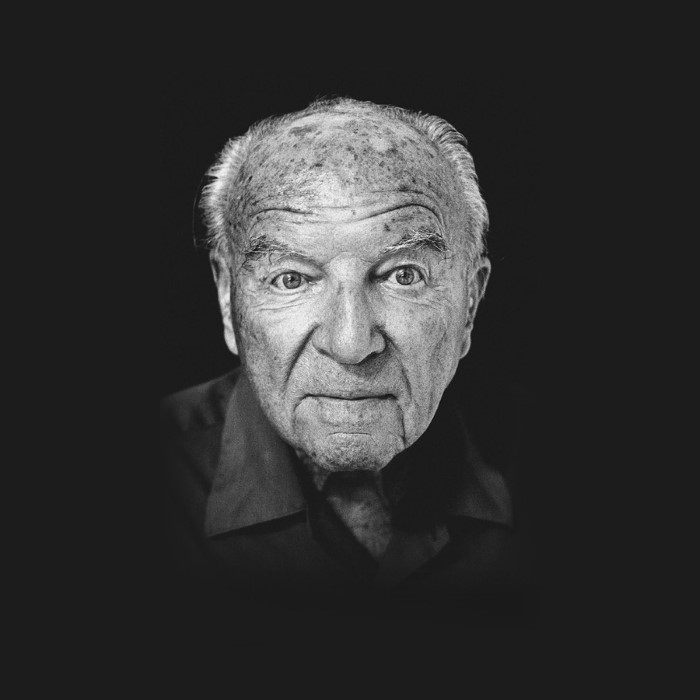Album Releases  view
view
Members
1 Male
Origin
 Austrian
Austrian
Genre
 Composer
Composer
Style
Classical
Mood
---
Born
1 Male
Origin
Genre
Style
Classical
Mood
---
Born
1900
Active ---
![]() 1991
1991
Cutout![]()
Alternate Name
Krenek
No loved tracks found...
Artist Biography
Available in:
Ernst Krenek (August 23, 1900 – December 22, 1991) was an Austrian, later American, composer of Czech origin. He explored atonality and other modern styles and wrote a number of books, including Music Here and Now (1939), a study of Johannes Ockeghem (1953), and Horizons Circled: Reflections on my Music (1974). Krenek wrote two pieces using the pseudonym Thornton Winsloe.
Born Ernst Heinrich Křenek in Vienna (then in Austria-Hungary), he was the son of a Czech soldier in the Austro-Hungarian army. He studied there and in Berlin with Franz Schreker before working in a number of German opera houses as conductor. During World War I, Krenek was drafted into the Austrian army, but he was stationed in Vienna, allowing him to go on with his musical studies. In 1922 he met Alma Mahler, widow of Gustav Mahler, and her daughter, Anna, to whom he dedicated his Symphony No. 2, and whom he married in March 1924. That marriage ended in divorce before its first anniversary.
At the time of his marriage to Anna Mahler, Krenek was completing his Violin Concerto No. 1, Op. 29. The Australian violinist Alma Moodie assisted Krenek, not with the scoring of the violin part, but with getting financial assistance from her Swiss patron Werner Reinhart at a time when there was hyper-inflation in Germany. In gratitude, Krenek dedicated the concerto to Moodie, and she premiered it on 5 January 1925, in Dessau. Krenek's divorce from Anna Mahler became final a few days after the premiere. Krenek did not attend the premiere, but he did have an affair with Moodie, which has been described as "short-lived and complicated". He never managed to hear her play the concerto, but he did "immortalize some aspects of her personality in the character of Anita in his opera Jonny spielt auf". This 'jazz opera', completed in 1926, was an enormous success across Europe and made Krenek a household name for several years; there was even a brand of cigarettes, still on the market today in Austria, named "Jonny". Krenek himself became uncomfortable with this success though, as his musical colleagues criticised the commercialisation of his music, and shortly afterwards changed his compositional direction radically.
The jazz-influenced score of Jonny spielt auf and its central character of a black jazz musician (who is also seen womanising and stealing a priceless violin) brought Krenek the opprobrium of the nascent Nazi Party; the image of Jonny was distorted to form the centrepiece of the poster advertising the Entartete Musik exhibition of so-called 'degenerate' music in 1938. Krenek was frequently named as a Jewish composer during the Third Reich, although he was not, and was intimidated by the regime until his emigration; on March 6, 1933, one day after the last semi-free election of March 1933, Krenek's incidental music to Goethe's Triumph der Empfindsamkeit was withdrawn in Mannheim, and eventually pressure was brought to bear on the Vienna State Opera, which cancelled the commissioned premiere of Karl V.
In 1938 Krenek moved to the United States, where he taught music at various universities, the first being Vassar College. He later taught at Hamline University in Saint Paul, Minnesota from 1942 to 1947. There he met and married his third wife, his student and composer Gladys Nordenstrom. He became an American citizen in 1945. He later moved to Toronto, Ontario, Canada, where he taught at The Royal Conservatory of Music during the 1950s. His students included Milton Barnes, Lorne Betts, Roque Cordero, Samuel Dolin, Robert Erickson, Halim El-Dabh, Richard Maxfield, Will Ogdon, and George Perle. He died in Palm Springs, California, where he had lived since 1966. In 1998 Gladys Nordenstrom founded the Ernst Krenek Institute; in 2004 the private foundation moved from Vienna to Krems, Austria.
Wide Thumb
Clearart
Fanart

Banner
User Comments
 No comments yet..
No comments yet..











